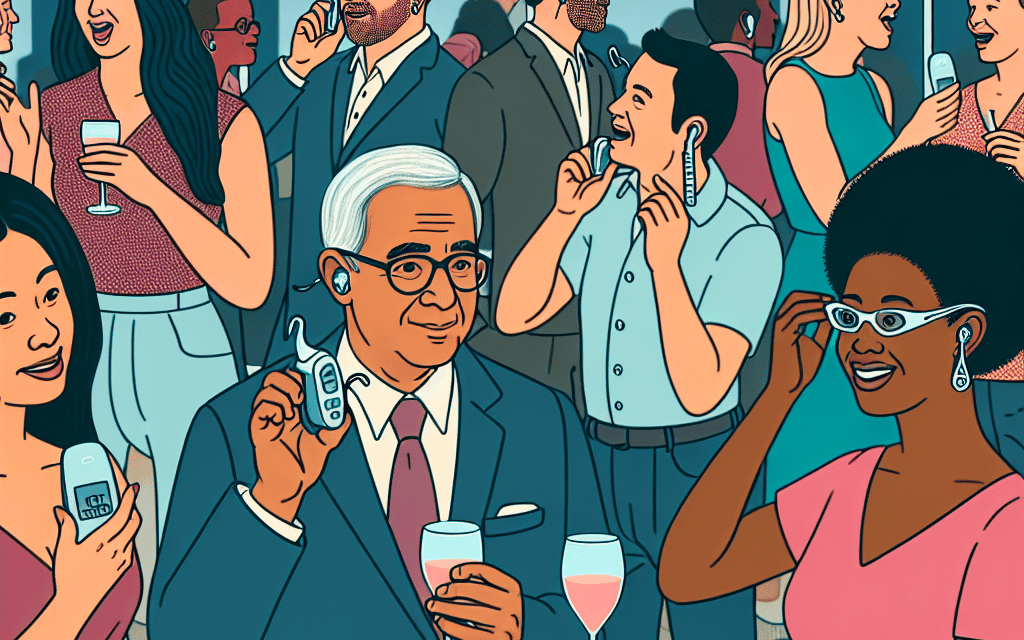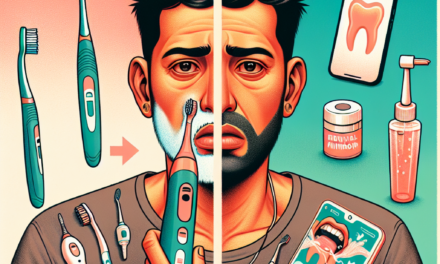Enhancing Social Connections: The Impact of Hearing Aids on Relationships
Hearing loss is a prevalent issue that affects millions of individuals worldwide, significantly impacting their ability to communicate and connect with others. As technology advances, hearing aids have become more sophisticated, offering not just improved hearing but also a pathway to enhance social connections. This article explores the multifaceted impact of hearing aids on relationships, delving into how they facilitate communication, improve mental health, and foster social engagement.
The Nature of Hearing Loss and Its Social Implications
Hearing loss can be categorized into various types, including conductive, sensorineural, and mixed hearing loss. Each type presents unique challenges that can affect interpersonal relationships.
- Types of Hearing Loss:
- Conductive Hearing Loss: Often caused by blockages or damage to the outer or middle ear, this type can often be treated medically or surgically.
- Sensorineural Hearing Loss: This is the most common type, resulting from damage to the inner ear or auditory nerve, often permanent and requiring hearing aids for management.
- Mixed Hearing Loss: A combination of conductive and sensorineural hearing loss, which can complicate treatment and management.
Regardless of the type, hearing loss can lead to significant social implications:
- Isolation: Individuals with hearing loss often withdraw from social situations due to difficulty in communication, leading to feelings of loneliness.
- Misunderstandings: Inability to hear clearly can result in miscommunication, causing frustration and conflict in relationships.
- Stigmatization: There is often a stigma associated with wearing hearing aids, which can deter individuals from seeking help and further isolate them.
Understanding these implications is crucial for recognizing the importance of hearing aids in restoring social connections. By addressing hearing loss, individuals can reclaim their ability to engage meaningfully with others.
The Role of Hearing Aids in Restoring Communication
Hearing aids are designed to amplify sound, making it easier for individuals with hearing loss to engage in conversations. The technology has evolved significantly, with modern devices offering features that enhance communication in various environments.
- Advanced Technology:
- Directional Microphones: These help focus on sounds coming from a specific direction, making it easier to hear conversations in noisy environments.
- Bluetooth Connectivity: Many hearing aids now connect to smartphones and other devices, allowing users to stream audio directly into their hearing aids.
- Noise Reduction Features: These features help filter out background noise, making it easier to focus on conversations.
These advancements have a profound impact on communication:
- Improved Clarity: Users report clearer sound quality, which enhances their ability to understand speech, especially in group settings.
- Increased Participation: With better hearing, individuals are more likely to engage in conversations, attend social gatherings, and participate in activities they once avoided.
- Strengthened Relationships: Improved communication leads to fewer misunderstandings and conflicts, fostering stronger bonds with family and friends.
Case studies illustrate these benefits. For instance, a study published in the Journal of the American Geriatrics Society found that older adults who used hearing aids reported higher levels of social engagement and satisfaction in their relationships compared to those who did not use them.
The Psychological Impact of Hearing Aids on Social Interactions
The psychological effects of hearing loss can be profound, often leading to anxiety, depression, and a decline in overall mental health. Hearing aids can play a crucial role in mitigating these effects.
- Reduction in Anxiety:
- Many individuals with hearing loss experience anxiety in social situations due to fear of miscommunication. Hearing aids can alleviate this anxiety by improving clarity and confidence in conversations.
- A study by the American Psychological Association found that individuals who used hearing aids reported lower levels of social anxiety.
Moreover, the psychological benefits extend beyond anxiety:
- Boosted Self-Esteem: Wearing hearing aids can enhance self-image and confidence, allowing individuals to engage more freely in social situations.
- Improved Mood: Enhanced communication leads to more positive social interactions, which can improve overall mood and reduce feelings of isolation.
- Better Cognitive Function: Engaging in conversations and social activities can help maintain cognitive function, reducing the risk of cognitive decline associated with social isolation.
For example, a longitudinal study conducted by the National Institute on Aging found that older adults who actively engaged in social activities reported better mental health outcomes and cognitive function over time.
Hearing Aids and Family Dynamics
The impact of hearing aids extends beyond the individual user; they also significantly affect family dynamics. Improved communication can lead to healthier relationships within families.
- Enhanced Communication:
- Family members often report feeling more connected to their loved ones who use hearing aids, as communication barriers are reduced.
- Parents with hearing loss can engage more fully with their children, fostering stronger familial bonds.
Additionally, the emotional benefits are noteworthy:
- Reduced Frustration: Family members often experience frustration when trying to communicate with someone who has hearing loss. Hearing aids can alleviate this tension, leading to a more harmonious home environment.
- Increased Support: Families are more likely to support the use of hearing aids when they see the positive changes in their loved ones’ communication abilities and overall well-being.
- Shared Experiences: Improved hearing allows for shared experiences, such as family outings or gatherings, which can strengthen family ties.
A case study involving a family with a hearing-impaired member highlighted these dynamics. After the individual began using hearing aids, family members reported feeling more included in conversations and activities, leading to a noticeable improvement in family cohesion and satisfaction.
The Broader Social Impact of Hearing Aids
The benefits of hearing aids extend beyond individual relationships and family dynamics; they also have broader social implications. As more individuals with hearing loss use hearing aids, the overall social fabric of communities can improve.
- Community Engagement:
- Individuals with hearing aids are more likely to participate in community events, volunteer opportunities, and social clubs, fostering a sense of belonging.
- Increased participation can lead to more inclusive communities that value diversity and accessibility.
Moreover, the economic impact is significant:
- Increased Productivity: Individuals who can hear better are more likely to be productive in their jobs, contributing positively to the economy.
- Reduced Healthcare Costs: By improving mental health and reducing the risk of cognitive decline, hearing aids can lead to lower healthcare costs for individuals and society.
- Enhanced Quality of Life: The overall quality of life for individuals with hearing aids improves, leading to happier, healthier communities.
Statistics from the World Health Organization indicate that untreated hearing loss can lead to a significant economic burden, with costs related to lost productivity and healthcare expenses. By investing in hearing aids, society can mitigate these costs while enhancing the quality of life for individuals with hearing loss.
Conclusion: The Transformative Power of Hearing Aids
Hearing aids are more than just devices for amplifying sound; they are tools that can transform lives by enhancing social connections. From improving communication and reducing anxiety to fostering stronger family dynamics and promoting community engagement, the impact of hearing aids on relationships is profound.
As technology continues to advance, the potential for hearing aids to improve the quality of life for individuals with hearing loss will only grow. It is essential for society to recognize the importance of these devices and to support individuals in seeking help for their hearing loss.
In summary, the journey towards better hearing is not just about sound; it is about reclaiming social connections, enhancing relationships, and ultimately leading a more fulfilling life. By embracing the power of hearing aids, individuals can break down barriers, foster meaningful connections, and thrive in their personal and social lives.





